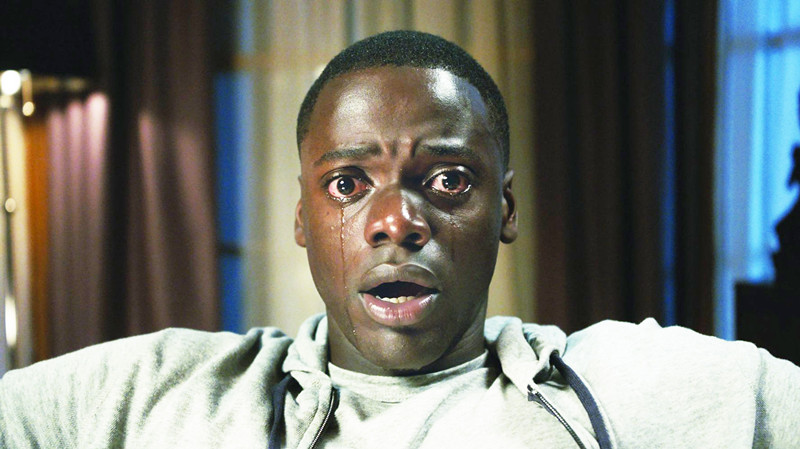
Psychological manipulation is a complex, creepy, yet fascinating subject for a rewarding night out at the cinema, and one that can manifest itself in various ways. Sometimes the most exciting premise for a genre film can be deceptively simple and still very sinister, and also be incredibly effective.
It’s with this idea at the fore that Taste of Cinema presents a list of the best movies about mind control. Admittedly we at first imagined it would be a list strictly limited to the sci-fi genre, but we found horror films, comedies, and arthouse favorites have lots to interpret and imagine when it comes to mind control and mass manipulation.
Enjoy and please add other films of this nature in the comments section below.
10. THX 1138 (1971)
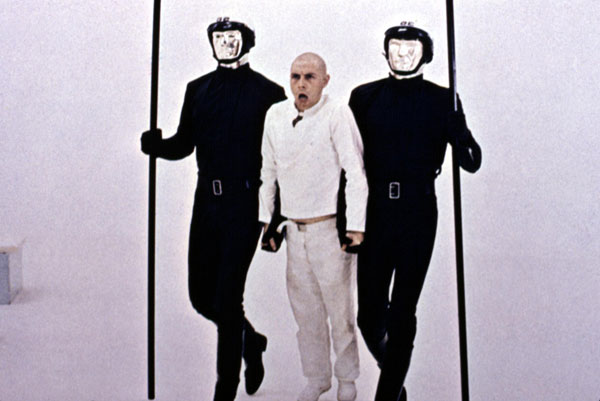
Set in a dystopian future somewhere in the 21st century where the world’s populace is brainwashed via the mandatory use of emotion-suppressing drugs and an oft-times brutal android police force. THX 1138 is the feature length directorial debut from George Lucas––developed from his student film.
A bleak future for man, set in a police state, THX 1138 is an inauspicious debut but an interesting one. Produced on a small scale by Lucas’s good friend, Francis Ford Coppola, the film takes a minimalist approach to set design, and once combined with an eerie lowkey sound design, the bleak and sparse setting becomes all the more palpable, and the state’s cruel forms of mind control, all the more unsettling and plausible.
Stars Robert Duvall and Donald Pleasence helped cement the film’s cult status, and fans of Lucas will be intrigued and may find the downbeat matter-of-course, poles apart from his later Star Wars films, rather surprising. It’s a minor classic from a major player.
9. Village of the Damned (1960)
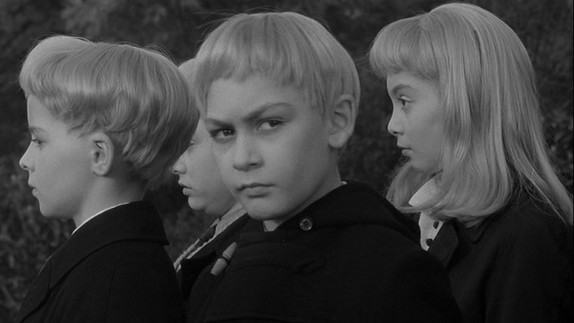
Adapted from the 1957 John Wyndham novel “The Midwich Cuckoos”, Wolf Rilla’s 1960 sci-fi horror classic Village of the Damned, is an impressive, paranoia-addled ephebiphobic freak out.
Set in the bucolic British village of Midwich, a mysterious and inexplicable instance occurs wherein everyone collectively blacks out for six hours. When everyone comes to it’s discovered that all women and girls of child-bearing age are pregnant and then, seven months to the day, the children are simultaneously born.
Growing at an abnormal rate, these children––who all have a similar ashen appearance, spooky white-blonde hair, and correspondingly ghoulish illumined eyes––remain creepily calm and seemingly devoid of emotion, and soon show signs of vast psychic abilities. Capable of reading the adults’ minds, the children are also able to control and manipulate them mentally into acts of terrible self-harm.
A classic of British horror (a sequel, a remake, and countless parodies have followed), Village of the Damned’s children have come to represent iconic figures of mind-controlling evil. “A brick wall… a brick wall… I must think of a brick wall… a brick wall…”
8. Being John Malkovich (1999)
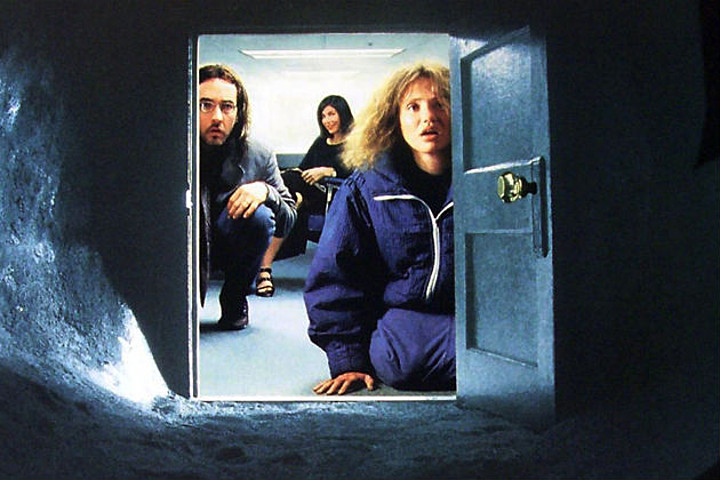
Screenwriter Charlie Kaufman’s 1999 breakthrough, Being John Malkovich (also the directorial debut of Spike Jonze), is a visionary and highly imaginative film with freaky ideas of mind-manipulation infiltrating the story as it lurches towards its tragicomical conclusion. Exploring themes of identity, celebrity, stalking, spying, and mind-control manipulation, in a manner that is as inventive as it’s odd and unforgettable.
The offbeat premise of Being John Malkovich is somewhat described in its title, lowly puppeteer Craig (John Cusack) discovers a hidden door while goofing off at his new job.
Venturing through the odd door, he is sucked into a portal that lands him inside the mind of actor John Malkovich (John Malkovich), where Craig can look out John’s eyes and experience what he feels. It’s the ultimate in voyeurism and, as Craig discovers, is oddly addictive. Soon Craig, whose sidelined career is that of a puppeteer, learns that he can control Malkovich’s body while he invades his mind, and can also speak through his voice, making him into the perfect puppet.
The film takes many unexpected turns as periphery characters start to enter a shared conscious state in the mind of Malkovich. Coy commentary on communal experience is examined, along with hero worship and gender politics, too.
Amidst all this surreal polemic are loads of laughs, some sinister speculation about the addictive qualities of mind control, and more, all aggregating to an enduring cult classic that never stops throwing voyeuristic surprises and startling, laugh-out-loud epiphanies right up till the final fucked up frame.
7. Scanners (1981)
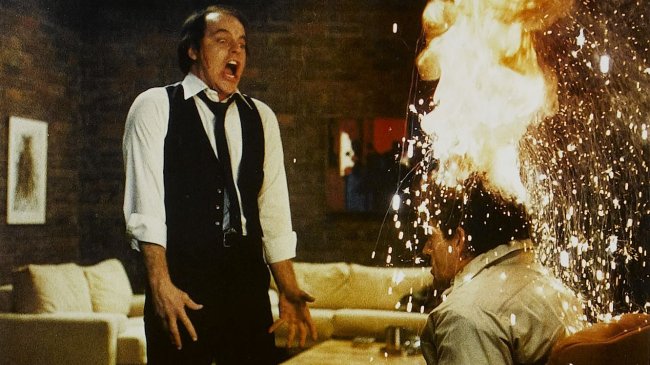
In his own words a movie that is “very much about heads,” Scanners solidified Canadian arthouse horror director David Cronenberg’s burgeoning international reputation as an auteur out to literally blow minds.
Equal parts horror film and sci-fi picture, Scanners stars Michael Ironside, Stephen Lack, Patrick McGoohan, and Jennifer O’Neill in a frequently goofy, strangely abstract, and visually rich conspiracy thriller about powerful telepaths (“scanners”) in the employ of ConSec, a private security firm with dubious ideas, who have zero scruples when it comes to controlling minds.
Cronenberg’s first fully politicized project, placing military-industrial ideas under a messy microscope, Scanners also started something of a franchise, spawning sequels and a series of spin-offs––though none of these had any involvement with Cronenberg. An essential early work from a world class talent, Scanners also got the Criterion treatment in 2012, much to the delight of the director’s fans. Miss this movie at your peril. You’ve been warned.
6. Brazil (1985)
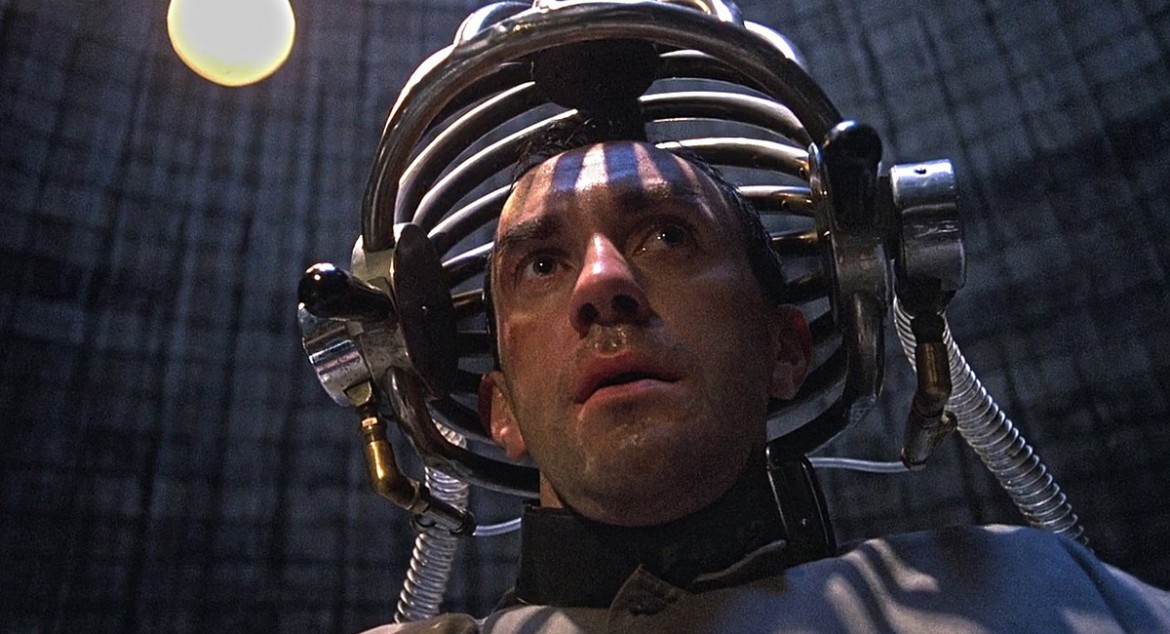
Terry Gilliam perfected the movie mindfuck with his dystopian satire Brazil. This dense, detailed, and visually rich sci-fi fantasy pairs sublimely with a strangely nostalgic retro-future where unexceptional everyman Sam Lowry (Jonathan Pryce) is but a cog in an Orwellian governmental machine.
There’s a slapstick quality to Brazil, which was written by Gilliam along with Tom Stoppard and Charles McKeown, and a majestic ambition in its futuristic depiction of bureaucracy gone mad, and for all it’s bizarro visuals––terrorists with baby-faced masks, angelic dream sequences, Lowry’s mother’s endlessly odd facelifts to retain her youth––it’s a film that can be deliberately hard to follow. That doesn’t mean that Brazil isn’t Gilliam’s finest hour, for it certainly is.
And as Lowry leads us further and further down the rabbit hole, the Ministry is desperate to change his mind about joining any resistance movement that could threaten the state. Through his former best pal, Jack Lint (Michael Palin, terrifyingly cast against type), who has many mind-control tactics, each dangerously close to lobotomy, Lowry’s very mind may be used against him if he isn’t careful.
The original title for Brazil, according to Gilliam, was 1984½. “Fellini was one of my great gods,” says the director, “and it was 1984, so let’s put them together.” This easily accounts for the arthouse instincts of the film, as well as the surreal and very serrated edge in this playfully pretentious but still remarkably miraculous sortie into the imagination and the dangers of state-sanctioned mind manipulation.